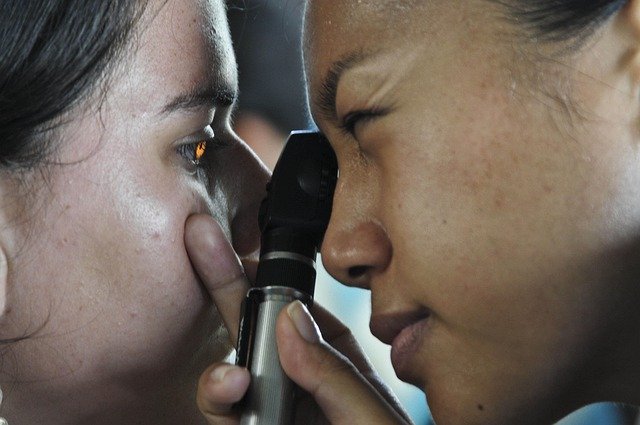Nursing and Caregiver Jobs: Essential Roles in Healthcare
Nursing and caregiver jobs play a fundamental role in providing care and support to individuals who need assistance with their daily activities or health-related needs. These roles are essential in various healthcare settings, including hospitals, nursing homes, and home care environments. This article will discuss the responsibilities of nurses and caregivers, the skills required for each role, and the growing demand for these positions in the healthcare industry.
What is the Role of Nurses in Healthcare?
Nurses are essential members of the healthcare team, providing direct patient care and serving as advocates for their patients. They assess medical conditions, administer treatments, and collaborate with doctors to develop care plans. Nurses also educate patients and their families about health conditions and preventive care measures. Their responsibilities may vary depending on their specialization, ranging from critical care and pediatrics to oncology and geriatrics.
What Skills are Required for Nursing Jobs?
Successful nurses possess a unique blend of technical expertise and interpersonal skills. Critical thinking and problem-solving abilities are crucial for making quick decisions in high-pressure situations. Strong communication skills are necessary for interacting with patients, families, and other healthcare professionals. Empathy and emotional resilience help nurses provide compassionate care while managing the emotional demands of the job. Additionally, proficiency in medical technology and electronic health records is increasingly important in modern healthcare settings.
How Do Caregivers Support Patient Well-being?
Caregivers play a vital role in supporting individuals who need assistance with daily activities due to illness, disability, or aging. They provide personal care, such as bathing and dressing, and help with household tasks like meal preparation and light housekeeping. Caregivers also offer emotional support and companionship, which can significantly improve a patient’s quality of life. In some cases, they may assist with medication management and coordinate care with other healthcare providers.
What is the Current Demand for Nursing and Caregiver Jobs?
The demand for nursing and caregiver jobs is experiencing significant growth due to several factors. An aging population, increased prevalence of chronic diseases, and advancements in medical technology all contribute to the rising need for healthcare professionals. The Bureau of Labor Statistics projects a 6% growth in registered nursing jobs from 2022 to 2032, faster than the average for all occupations. Similarly, the demand for home health and personal care aides is expected to grow by 22% during the same period, much faster than average.
What are the Benefits of Pursuing a Career in Nursing and Caregiving?
Nursing and caregiving careers offer numerous benefits beyond job security. These professions provide opportunities for personal growth and the satisfaction of making a meaningful impact on people’s lives. Career advancement possibilities are plentiful, with options to specialize in various areas of healthcare or move into leadership roles. Many healthcare institutions offer competitive salaries, comprehensive benefits packages, and flexible scheduling options. Additionally, the skills gained in these careers are highly transferable, opening doors to diverse opportunities within the healthcare industry.
- Emotional rewards of helping others
- Opportunities for specialization and advancement
- Job security in a growing field
- Competitive compensation and benefits
- Flexible work schedules in many settings
- Continuous learning and skill development
| Provider Type | Average Annual Salary (USD) | Key Skills Required |
|---|---|---|
| Registered Nurse | 77,600 | Clinical expertise, critical thinking, communication |
| Licensed Practical Nurse | 48,070 | Basic nursing care, medication administration, patient monitoring |
| Certified Nursing Assistant | 30,310 | Personal care, vital signs monitoring, patient mobility assistance |
| Home Health Aide | 27,080 | Personal care, housekeeping, companionship |
| Caregiver | 25,280 | Empathy, time management, basic medical knowledge |
The nursing and caregiving professions offer diverse opportunities for those seeking to make a difference in healthcare. Whether working in hospitals, long-term care facilities, or private homes, these roles are essential to patient well-being and the overall functioning of the healthcare system. As the demand for skilled healthcare professionals continues to rise, pursuing a career in nursing or caregiving can provide both personal fulfillment and professional stability. With ongoing advancements in medical technology and an ever-evolving healthcare landscape, these careers promise continuous growth and learning opportunities for dedicated individuals.
Sources: [1]. Bureau of Labor Statistics - Registered Nurses - https://www.bls.gov/ooh/healthcare/registered-nurses.htm [2]. Bureau of Labor Statistics - Home Health and Personal Care Aides - https://www.bls.gov/ooh/healthcare/home-health-aides-and-personal-care-aides.htm [3]. Bureau of Labor Statistics - Licensed Practical and Licensed Vocational Nurses - https://www.bls.gov/ooh/healthcare/licensed-practical-and-licensed-vocational-nurses.htm [4]. Bureau of Labor Statistics - Nursing Assistants and Orderlies - https://www.bls.gov/ooh/healthcare/nursing-assistants.htm
This article is for informational purposes only and should not be considered medical advice. Please consult a qualified healthcare professional for personalized guidance and treatment.
The shared information of this article is up-to-date as of the publishing date. For more up-to-date information, please conduct your own research.





